November 14, 2018 ~ These documents were sent to me by an inside source at the Seattle Housing and Resource Effort (SHARE). SHARE runs a network of more than a dozen homeless shelter facilities around Seattle and King County. These facilities fall into four categories: roving tent camps (known as tent cities), indoor shelters at churches, SHARE-owned shelter properties, and sanctioned (government-funded) shanty towns called “tiny house villages.” SHARE claims to be sheltering up to 350 homeless individuals daily among all of its shelter programs, excluding the shanty towns, but these numbers are impossible to verify. The comic and supporting documents were created by an unknown author and distributed surreptitiously around the SHARE shelter network in late September of 2016. It went into two revisions and “printings” and was well-received both by SHARE’s homeless residents and by ex-residents, many of whom had been summarily evicted from the camps.

Back Story
SHARE spokespeople tell the public officials and private donors who fund it that the organization is democratically run and that each facility is self-managed and has its own rules separate from those of the others. In some respects, this is true. Tent camps, shelters, and tiny house shanty towns all have different requirements, so they’re organized and managed differently. Tent camp residents, for example, are required to do security shifts guarding the entrance to the camp, a task that is either not required at indoor shelters or is not as time-consuming. Security duty at a tent camp involves one or two camp residents manning a shack at the camp entrance, running warrant checks on new arrivals, and screening everyone who enters the camp. The shifts typically run two hours and can be scheduled for any time of the day or night, because the camp needs 24-hour coverage. The number of “securities” required per person per week is determined by the number of people in the camp.
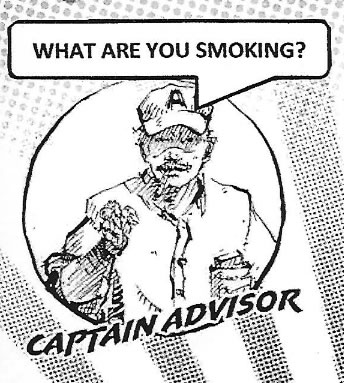 Security duty is widely considered the hardest chore residents of the tent camps have to do. Former SHARE residents have told me that this was a constant drain on them and kept homeless people who wanted to find work from being able to get it, either because they were too tired after working so many securities or because the shifts they were assigned to conflicted with appointments. Camp managers take the security duty requirement seriously. No excuses are allowed, and being late for a security shift can get a resident “barred” or evicted from the camp for three days or more. There are other infractions besides missing a security shift and, depending on the nature of the offense, a resident can get barred permanently… and not just barred from one shelter or camp but from any facility in the SHARE network.
Security duty is widely considered the hardest chore residents of the tent camps have to do. Former SHARE residents have told me that this was a constant drain on them and kept homeless people who wanted to find work from being able to get it, either because they were too tired after working so many securities or because the shifts they were assigned to conflicted with appointments. Camp managers take the security duty requirement seriously. No excuses are allowed, and being late for a security shift can get a resident “barred” or evicted from the camp for three days or more. There are other infractions besides missing a security shift and, depending on the nature of the offense, a resident can get barred permanently… and not just barred from one shelter or camp but from any facility in the SHARE network.
The Boss Man comic below is based on a true story that has played out frequently at SHARE homeless camps. A resident is penalized for violating a rule and is then given an arbitrary or unfair punishment by a corrupt camp boss or higher-level SHARE staffer. Appeals of the punishment are summarily dismissed and grievances against management are ignored. Camps often go into a state of rebellion and are either shut down permanently or starved into submission and reorganized, depending on how deep it went. Honest camp managers who take the “democratic self-management” idea seriously or who try to defend their charges from harsh punishments are systematically removed and replaced by ones more subservient to the will of SHARE’s governing board, a clique of eight or nine individuals who are loyal to SHARE boss Scott Morrow. In some cases, a camp will be stripped of support and then allowed to descend into chaos before it is finally closed.

Many of the characters in the comic are composites, but the eponymous anti-hero is based on a real person named Marvin Futrell. When Boss Man was published, Futrell was a paid SHARE staffer whose official job title was “organizer,” but his real job was to be the enforcer of SHARE boss Scott Morrow’s will. If SHARE was a plantation, Futrell would be the overseer, the guy out in the fields cracking his whip over the backs of the slaves, while Morrow would be the planter, rocking gently back and forth on the front porch of the big house, sipping juleps.
This particular story is set in Tent City 3 (TC3), which at that time in 2016, was located at the former St. George’s Episcopal Church in north Seattle. But TC3’s experience was hardly unique. Anyone who’s spent time in SHARE pipeline will relate to Boss Man, because they’ve lived some aspect of it. For everyone else – all my non-homeless readers – I’ve included an explanatory section at the end:
The Boss Man comic
Supporting documents
This file contains “bar letters” that were presented by TC3 staff to the SHARE board banning Futrell from entering. Also included are letters and miscellaneous materials referred to in the text:
Download the complete Boss Man comic and documents here.
Understanding Boss Man
A frequent bone of contention for SHARE’s shelter and camp residents is SHARE’s claim that its shelters are self-managed and democratic. However, the residents I’ve met – even the ones who are well-disposed to SHARE – tell a much different story. They say that the self-management is just for show and that the SHARE board, dominated by Scott Morrow, regularly overrules camp-level decisions Morrow finds inconvenient or threatening to his position. Some policy decisions are made at the group’s so-called Power Lunch mass meetings, but these confabs can be scheduled on short notice and switched at the last minute so that only Morrow’s people are there.
According to SHARE’s published book of rules and guidelines (The SHARE Book), there are two levels of rules within the SHARE organization: shelter level and SHARE level. SHARE-level rules apply across all SHARE facilities and are theoretically approved by a vote of the whole organization or the board, while shelter-level rules are created and enforced by the residents of a given facility. The Boss Man comic describes how these rules are redefined, reinterpreted, and otherwise manipulated so that Morrow and his underlings can justify any disciplinary action. Grievances against SHARE staff and board-level appeals of staff decisions are allowed, but they are handled behind closed doors, and generally go against the appellant. It’s common for camp-level disciplinary decision to be overruled by the SHARE board.
Cast Away
Being “barred” evicted from a camp or shelter is the most common disciplinary action taken by SHARE staff against a homeless person. And it is certainly the most harsh. A bar can be 1 day, 3 days, 7 days, 30 days, or permanent. A person can be barred from a single SHARE shelter or all of them. When someone gets barred, they have a short time to gather their belongings and leave. Depending on the shelter and length of the bar, the formerly homeless person – now homeless again thanks to the bar – might be allowed to store any belongings they can’t carry inside the shelter or camp for the duration, but if they are barred permanently, then they have a limited amount of time (usually a week) to get their things. If the deadline elapses, their possessions are destroyed. SHARE staff are supposed to avoid barring someone at night and they are supposed to accompany the barred person to the nearest bus stop and see them safely aboard, but these courtesies are often bypassed. There have been documented instances of SHARE camp residents, including women and children, being barred at all hours and in all weather conditions, and turned out on the street. People who have been punished this way may appeal, but the process is designed to discourage people from appealing.* And in the meantime, while they’re waiting to hear, they’re on the street.

Panel 18 shows people who have been permanently barred from SHARE shelters now living in the notorious Jungle camp under I-5 in south Seattle. This isn’t merely a comic fantasy; for hundreds of former SHARE residents, it’s a reality. The artist knew what they were was doing by depicting a bar as a painful lump on the head.
The story opens with the Tent City 3 (TC3) camp manager barring a resident for three days for a missed security duty. The manager’s decision is overruled by Boss Man Marvin Futrell, Scott Morrow’s enforcer. Futrell justifies his decision by issuing a series of memos from the SHARE central committee, some of which are contradictory… but all of which support his actions.
The TC3 campers then file an official grievance against Boss Man with the SHARE board. The grievance is denied and Boss Man is exonerated, and another SHARE staff memo is disseminated to all campers stating that the 7-day bar rule is in fact not a SHARE-level rule but applies only to tent cities 3 and 4. In a subsequent memo, that decision is further justified by a bureaucratic sleight-of-hand in which the grievants’ claims that they are a “shelter” (and thus entitled to make their own rules) are used against them. Because they claimed to be autonomous shelters, the tent city residents are told, they will now have to submit to the even more stringent rules that apply to SHARE’s indoor shelters.
Stickin’ it to the Man
In panel 13, the artist fantasizes about using Boss Man’s self-serving logic of “tent camps = shelters” against him. In the fall of 2016, SHARE closed its indoor homeless shelters and forced the ex-residents to encamp at two new tent cities (TC6 and TC7) it had created on the steps of the King County Administration Building. These were protests aimed at pressuring the County’s Community Human and Services department to restore $70,000 in funding it had just cut from SHARE for non-performance. The SHARE board rewarded the protesters with free Metro bus tickets (bought by SHARE from the County at a deep discount) while the rebellious TC3 and TC5 camps, which did not support the protest, had their bus tickets withheld. A County auditor later determined that SHARE violated their agreement with Metro by distributing the tickets to protesters, since the protest camps did not qualify as shelter in their view. The County sent SHARE a stern letter, but took no further action.
The second half of the Boss Man story revolves around tent city residents making direct appeals to the membership at SHARE’s “Power Lunch” mass meetings and filing more grievances against Boss Man Marvin Futrell. The Power Lunch appeals go nowhere, though, because they don’t sway Scott Morrow or the SHARE board, who stand behind Boss Man, and the grievances are all rejected on the grounds that whatever rules Boss Man might have violated, he did so “without malice.” Even when the SHARE board nominally agrees with the grievants that the TC3 campers were mistreated, all that comes of it is a slip of paper in Boss Man’s personnel file. Camp residents ultimately vote to bar Boss Man Futrell from the camp, and bar papers are drawn up and delivered to Futrell in person.
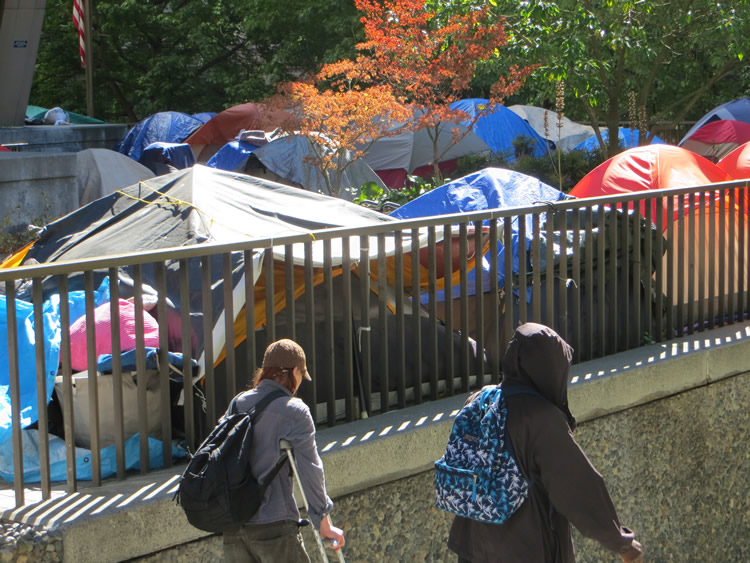
Protest camp at the King Count Administration Building, 2016
Aftermath
The saga ends with Boss Man Futrell being barred from entering the camp, an event that really happened. After Futrell was barred, SHARE boss Scott Morrow determined that the camp was in full rebellion and needed to be taught a lesson, so he cut off the part of their food supplies he controlled, changed their official e-mail addresses, and diverted donors away from the camp and back to the SHARE central office. Within a few months, the rebellious camp leaders cried uncle and left. They were replaced by others who were more compliant and the camp was moved to the University of Washington campus, where it stayed for a year.
Ironically, Futrell was fired at a Power Lunch gathering (for barring a disabled camp resident without cause). The SHARE board didn’t immediately countermand that but Futrell has since been reinstated and now works at one of the city-sanctioned shack villages.
Taken together the incidents described in Boss Man evoke a troubled organization that is part charity, part crime ring, and part personality cult. But whatever else you can say about the SHARE organization, you can’t call it democratic. SHARE is still getting hundreds of thousands of taxpayer money annually to run its shelter and shanty town operations in King County and Seattle. Over the years, I have brought my concerns about SHARE’s arbitrary, illegal, and downright cruel treatment of homeless people to the attention of City and County officials many times, using documentation such as that included in the Boss Man comic packet. Like the pleas of the characters in the story, my words have fallen on deaf ears. So I can relate.
–David Preston
Easter Eggs
 SHARE boss Scott Morrow makes a cameo appearance (in panels 9 and 10) as a brownie-munching, sleep-deprived buffoon, but he is otherwise conspicuously absent, as are most other SHARE potentates, including Morrow’s girlfriend Peggy Morrow (who runs SHARE’s PR machine), Michele Marchand (leader of SHARE’s women’s branch (WHEEL)), and long-time Morrow loyalist Anitra Freeman, who serves as SHARE’s public face while Morrow operates in the shadows. Marchand and her “Women in Black” group appear as mice in panel 17. Like the Women in Black who stand vigil for homeless people who’ve died on the streets, the Mice in Black stand vigil for a dead cat. Their signs read, “Without shelter, critters die,” – a play on Marchand’s “Without shelter, people die,” slogan.
SHARE boss Scott Morrow makes a cameo appearance (in panels 9 and 10) as a brownie-munching, sleep-deprived buffoon, but he is otherwise conspicuously absent, as are most other SHARE potentates, including Morrow’s girlfriend Peggy Morrow (who runs SHARE’s PR machine), Michele Marchand (leader of SHARE’s women’s branch (WHEEL)), and long-time Morrow loyalist Anitra Freeman, who serves as SHARE’s public face while Morrow operates in the shadows. Marchand and her “Women in Black” group appear as mice in panel 17. Like the Women in Black who stand vigil for homeless people who’ve died on the streets, the Mice in Black stand vigil for a dead cat. Their signs read, “Without shelter, critters die,” – a play on Marchand’s “Without shelter, people die,” slogan.
The chicken in panel 3 refers to a case of canned chicken that was allegedly pilfered from TC 3’s kitchen by SHARE staffer Sheri Rowe. The camp advisor tried to have Rowe fired for this but was unsuccessful.
The trope of comic book characters meeting on the street (starting in panel 5) is based on the real-life scenario of camp residents and staff being forced to wait outside in the alley outside SHARE’s office at the Josephinum building in downtown Seattle, while the SHARE board meets behind locked doors to decide their fate.

Little Big Men: The real Marvin Futrell and Scott Morrow
Glossary
Captain Advisor = A play the “Camp Advisor.” The Camp Advisor role was created for Tent City 3 after the camp went into internal “receivership” following a series of corruption scandals in 2016.** At a Power Lunch meeting in early 2016, three receivers were designated to monitor and advocate for the camp, and to help run it independently of direct SHARE control. These were the seeds of rebellion, but given the influence Scott Morrow continued to exercise over the organization as a whole, it was bound to fail. After a few short months in “receivership” the camp was brought back under Morrow’s control. It was then moved to another location.
EC = Executive Committee. Every SHARE tent camp has a managing committee of five residents who are empowered to enforce shelter-level and SHARE-level rules and policies at that particular camp. In Boss Man, the TC3 Executive Committee is represented by a single person, and indeed, when there are no other EC members present at a camp at a given time, a single EC can make act with the authority of the whole Committee. EC positions are elected and run for a term of one month. Being an EC carries some prestige and ECs are relieved from the necessity of doing other camp chores, but this is more than made up for by the EC job duties, which can be onerous.
MSP = Moved, seconded, passed. This is a reference to the Roberts Rules of Order process for democratically enacting a rule or policy. Part of SHARE culture is to reference properly enacted rules by attaching an “MSP” to them.
Power Lunch = Power Lunches are weekly mass-meetings of SHARE staff and clients held at various locations that SHARE controls, such as church shelters, tent cities, storage lockers. Delegates from the various SHARE facilities are there, and the meetings are usually 25 to 30 people. New SHARE-level rules and policies can be enacted at the meetings, but any actions can later be undone by the SHARE board, behind closed doors, or by manipulation of voting at subsequent Power Lunches.
*One ex-SHARE resident told us how it works: “At a camp you can appeal a bar at the next camp meeting, but all the camp can do is find whether there was “cause” for the bar. To get it reversed, you have to take it to “bar committee,” which means you have to go to the SHARE office and put your name in a list that’s taped to the locked door between 1-3 PM every other Tuesday. Then the committee meets every other Wednesday at 7 pm. Each shelter and tent city sends a person, they review your bar and either drop it or uphold it. After that you can take it to Power Lunch. This can take weeks, and in the end, there’s no guarantee. It’s designed so it’s too difficult for people to follow through.”
** According to a former TC3 resident, “People were barred during a move. A couple of the Executive Committee members were systematically getting rid of anyone they didn’t like and making it almost impossible for any outsiders to get into the camp. And the bookkeeper at the time, [name redacted], had created a system he called “done by,” where you could pay someone to do your security shift or go to a required meetings. The going rate was 10 bucks. He was also marking people off as having completed security and then pocketing the cash. That’s how Camp Second Chance [a SHARE offshoot camp in southwest Seattle] started. They split off because of all of Marvin Futrell’s bullshit. TC3 went into receivership on July of 2016 and SHARE was cut out of the picture for a while. The new camp managers ended all the corruption; in three months the camp logged in several thousand dollars in donations. Before the camp went into receivership, they had logged in nothing for several months. It was corrupt.”
Do you like honest journalism? Please reward it.
Thank you!




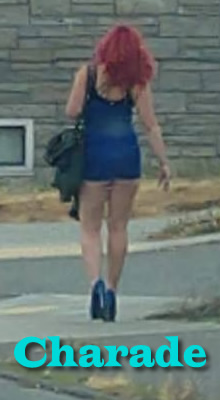
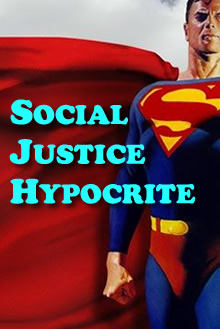


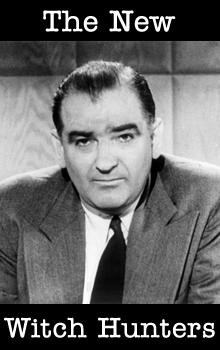


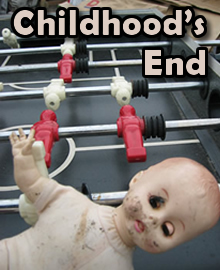

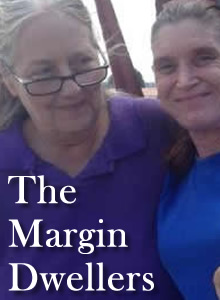







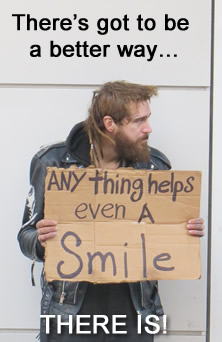
Hello,
I wanted to reach out to say thank you for publishing the Boss Man comics. My father, Stu Tanquist, was the author and he was very proud his work was being shared. He recently passed away on February 12th, so I wanted to reach out and say thank you, he was so excited to see his work being kept alive.
Sincerely,
Rachel Tanquist
Lets boil this article down to what it really means. I’ve seen this my whole life too. Leaders always love to quote rules, punish, and force compliance, and they love to say the word accountability. It never fails to dismay me that people tolerate it, local government accepts it, and the only reason they would is because Morrow takes societies down trodden off the streets so they don’t have to deal with them. Just like the school, throw money at the schools, the homeless, and into programs that don’t work. The result is the children get less educated, the homeless get a trickle of what is given and their numbers increase, and program people get money, but the problems persist and get worse. Morrow’s leadership style is classic divide and conquer and “don’t do as I do, do as I say.” Its piss poor leadership at its best. I did, however, have a thought, since many churches are involved in assistance, why not host a Christian Revival for the Homeless, they’re churches, right? I would say that’s God with a sweep of his hand, a move of the Holy Spirit, and the compassion of Jesus for God’s Children can do so much more good than merely only throwing money at the problem. God can turn the participants and the leadership of the whole organization around in a twinkling of the eye. Its never spoken of, but I wonder how much blood is really on Scott Morrow’s hands and those of his inner circle and supports in local government. How many people die on the streets yearly? How many were in SHARE/WHEEL that needlessly died. If it stinks to me and so many others, how much does it stink to God? He’s no respecter of persons, all are his children, and he loves them. A little paraphrased passage from the Bible, “you shall be judged by the standards you keep.” Morrow, Futrell, SHARE/WHEEL leadership let that sink in, God is not a fool that will tolerate corruption forever. He will pronounce justice at some point, and by then its too late for an appeal. Change now, reform, before its too late…Get a personal relationship with Jesus before its too late, because the Hell you create for participants will be your Hell for eternity…Life is merely a vapor of time and then its the judgment and one of two places to go…